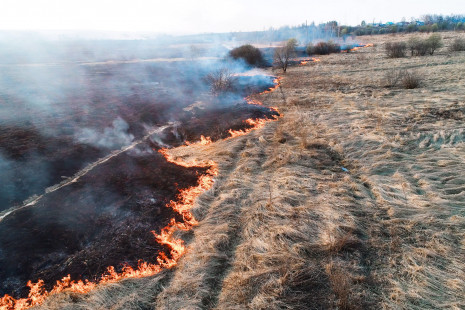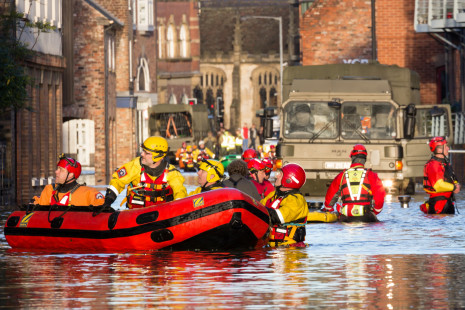National overview
What is Fire & Rescue National Resilience?
The National Resilience programme was established as part of the UK response to the terrorist attacks on the World Trade Centre in New York on 11 September 2001. National Resilience is a shared responsibility between central and local government.
National Resilience provides specialist capabilities, personnel and resources which enhance the ability of the sector to respond effectively to large-scale or critical incidents. Those incidents may be natural disasters, industrial accidents or terrorist attacks.
Merseyside Fire and Rescue Service are the designated lead authority on behalf of the Ministry of Housing, Communities & Local Government (MHCLG) and have the responsibility for the management and oversight of the 4 key areas that make up National Resilience:
- National Resilience Fire Control (NRFC)
- Long Term Capability Management (LTCM)
- National Resilience Training
- National Resilience Assurance Team (NRAT)
National Resilience Fire Control
National Resilience Fire Control (NRFC) is the primary source of contact for all fire and rescue services when seeking to engage support or assistance from National Resilience. They monitor and ensure the national Electronic Support System (ESS) is up to date and accurately reflects the availability of national resilience assets across the country. They work with the National Resilience Assurance Team (NRAT) in identifying and mobilising assets requested by an affected fire and rescue service to assist in the resolution of significant, serious and catastrophic incidents.
Long Term Capability Management
Long Term Capability Management (LTCM) is the means by which the national vehicles and equipment are serviced, maintained and replaced in accordance with asset lifting and procurement principles. Dedicated personnel are assigned to oversee the associated budget as well as the management of the contract between MHCLG , the lead authority and the prime contractor.
National Resilience Training
National Resilience (NR) training services are responsible for the management and co-ordination of the delivery of a variety of NR training skills acquisition courses. The role is to ensure compliance with key performance indicators (KPIs) related to staffing NR assets hosted by FRS. Personnel from each fire and rescue service are trained or re-trained in the specialist skills necessary for deployment to a major incident and to ensure the NR capabilities remain fit for purpose and in an appropriate state of readiness to respond.
The NR skills acquisition courses are funded by MHCLG and are offered without cost to the English UK fire and rescue services in order to maintain NR capabilities KPIs. The successful delivery of the model is maintained by the continued support of the NRAT capability teams and the support of the fire and rescue sector.
NR Training is also being facilitated for UKISAR, Wales and Northern Ireland on the same cost recovery basis for English UK fire and rescue service. The National Resilience Training Working Group provides the forum for governance and liaison between the fire and rescue service and other partners who deliver NR Training.
National Resilience Deployments
National Resilience capabilities have been used to respond with specialist resources to support large-scale incidents, such as seasonal flooding, the Croydon Tram crash and the wildfires in Yorkshire, Surrey and Dorset in 2020. However, the same capabilities are also used more regularly to respond to smaller scale local incidents, such as road traffic collisions, larger scale fires and incidents involving toxic or potentially hazardous materials.
National Resilience Assurance Team
The National Resilience Assurance Team (NRAT) is a group of Fire Service officers seconded from fire and rescue services across the UK. The team have day to day oversight of the National Resilience capabilities and conduct assurance as part of an established framework that ensure the national resilience vehicles, pods, equipment and personnel are suitably prepared and able to respond to incidents at local, regional and national level.
NRAT delivers operational, tactical and strategic training around the use of National Coordination Advisory Framework (NCAF), capability resources, MHCLG structures and learning from major and large scale incidents and are a key component within the NCAF. They undertake operational cover 24/7 to provide support to the affected fire and rescue service as well as ensuring relevant updates are provided in to MHCLG.
National Resilience Capabilities
The National Resilience capabilities have supported large scale and protracted incidents dating back to 2005 in response to wide scale flooding in the North West and South East of the country. More recently they have supported notable incidents including the Bosley Wood Flour Mill explosion, North West wildfires, Lincolnshire and South Yorkshire wide area flooding, Grenfell Tower, the Toddbrook Reservoir incident and the Chobham Common wildfires.
The National Resilience capabilities are:
Chemical, Biological, Radiation, Nuclear, Explosive (CBRNe):
- Mass Decontamination - specialist teams that enable the Fire and Rescue Service to efficaciously decontaminate large numbers of people following contact with a substance
- Detection, Identification and Monitoring (DIM) – specialist teams that provide the Fire and Rescue Service with the ability to make an assessment on the potential presence of chemical, biological and radiological agents
Enhanced Logistics Support (ELS):
Teams of personnel and vehicles utilised to assist with the management of large numbers of assets and resources at strategic holding areas which may be in attendance at large scale, major and/or protracted incidents.
High Volume Pumping (HVP):
Used to move significant volumes of water over long distances, either in response to floods, or to provide a water supply to fight fires in locations where large amounts are required.
Urban Search & Rescue (USAR):
Respond to large scale building collapse and/or major transport incidents and provide technical rescue capability for operations at height and confined spaces.
Marauding Terrorist Attack (MTA) specialist capability:
Specialist Fire and Rescue Service teams who work closely with Police and Ambulance services to provide a multi-agency response to MTA incidents.
In addition to these capabilities, NRAT have recourse to be able to access specialist tactical advice and resources to support wildfires and waste fires. Furthermore, the Department for Environment Food and Rural Affairs (DEFRA) owns and maintains the Flood Rescue National Asset Register. This is a list of teams and resources maintain availability for national deployment to assist with rescues during a flood. These assets include teams from the fire and rescue service and non-government and voluntary organisations. The list is managed as part of the Electronic Support System within NRFC.
National Resilience Assurance Team Contacts
NFCC Strategic Lead for National Resilience
DCFO Nick Searle
Email: NickSearle@merseyfire.gov.uk
National Resilience Area Manager
Paul Murphy
Email: PaulMMurphy@merseyfire.gov.uk

